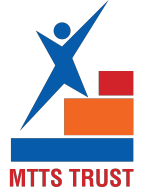During the “Discussion Meeting on Harmonic Analysis” held at I.I.Sc. Bangalore in 1992, a session was devoted to discuss the academic preparation of the students who come for Ph.D. programmes in Mathematics in various Universities and Institutions in the country. In order to improve the level of Ph.D. aspirants it was felt that a training programme should be started (starting at the B.Sc. level itself) which should expose bright young minds to the excitement of doing mathematics. The National Board for Higher Mathematics (NBHM) was approached with the proposal and it agreed to fund the programme. The first programme was held in the summer of 1993. This programme has been on since 1993 with funds from NBHM.
The programme was highly appreciated by the participants. We receive letters of appreciation from both teachers and the participants.
The success of this programme depends mainly on a very small group of mathematicians committed to the improvement of the mathematical scene in our country and as such lacks man-power and infrastructure.
The aims of this programme are as follows:
1. To teach mathematics in an interactive way rather than the usual passive presentation. To promote active learning, the teachers usually ask questions and try to develop the theory based on the answers and typical examples. At every level the participants are encouraged to explore, guess and formulate definitions and results.
2. To promote independent thinking in mathematics.
3. To provide a platform for the talented students so that they can interact with their peers and experts in the field. This serves two purposes: i) the participants come to know where they stand academically and what they have to do to bring out their full potential and ii) they establish a rapport with other participants and teachers which help them shape their career in mathematics.
The daily programme consists of lectures in the morning (from 9.30 a.m. to 1.00 p.m.) and problem sessions in the afternoon (from 2.00 p.m. to 5.00 p.m.)
Each level (I and II) has lectures in the four basic streams of Mathematics: Algebra, Analysis, Geometry and Topology. Students of Level O are offered courses in Basic Real Analysis, Linear Algebra, Geometry (curve tracing, sketching of surfaces, classification of quadric surfaces) and one of Discrete Probability, Combinatorics and Elementary Number theory.
The faculty is from various leading institutions of the country and is not confined to the institute of the venue. People who are experts in the field, who are known for their teaching and who have a commitment towards betterment of mathematics in India are chosen to give the courses. As a rule each course is taught by a single expert. This paves the way for better interaction (over a period of 4 weeks) between the faculty and students and also imparts a perspective of the field among the students. The faculty is requested to be present for all the sessions — not for their sessions alone! In the problem sessions all students are asked to do problems. All the four teachers of a level will actively help the students during the problem sessions. The teachers identify the difficulties of the individual students. Giving individual attention is one of the unique features of this programme which makes the programme successful. Some reading material is also provided. There are no tests at the end of the programme as we want to make it clear that the students should learn mathematics for the pleasure of doing it and not for the sake of examinations.
The programme is advertised in the newspapers every year sometime in the month of December. For the last several years, we are directly mailing the posters to colleges which offer B.Sc.(Mathematics), universities and institutes.
In the past we received about 1500 applications for all levels and centres. The screening depends very much upon the recommendations of the teacher. So we request the teachers to be very particular while recommending the students. Even if one student applies from each college we will receive about 5000 applications. We do not have the man power to screen such a large number of applications. Unless you, as a teacher, are convinced that there is some spark in the candidate and that the student wishes to pursue a research/teaching career in mathematics, please do not encourage him/her to apply for the programme. The programme is quite demanding and the student should be prepared to work under pressure.
How does one know whether the student is the kind we are looking for? One rule of thumb is that he reminds you of some of the top students whom you know of or that he does some independent thinking such as formulating problems, solving problems on his own.
We also look for the following traits as mentioned in the Recommendation form: Motivation, Capacity to grasp new concepts and perseverance, determination and grit.
Your cooperation, help and suggestions will help us make the programme successful.
Please feel free to write to me if you have any specific questions and to send your valuable suggestions to the Director of this Programme.
Professor S. Kumaresan, The Programme Director, MTTS
